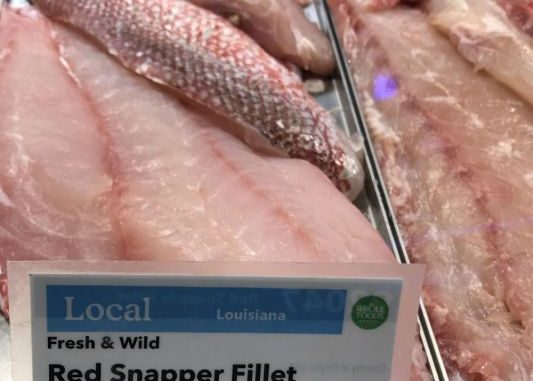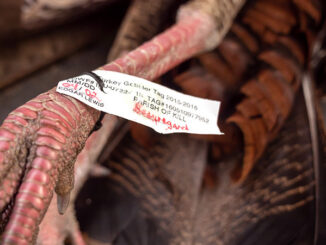
One Sea Lord’s seat is up for reappointment — but who will fill it?
Editor’s Note: This guest editorial by Jeff Angers was originally published in Sport Fishing Magazine. Angers, the president of the Center for Sportfishing Policy based in Baton Rouge, highlights the backdoor politics at play on the Gulf Council — which goes a long way in explaining why the Gulf’s red snapper fishery remains in a state of chaos. Recreational fisherman should hope this is one area of the “DC Swamp” that finally gets drained once and for all.
In a tremendous display of arrogance, Gulf of Mexico Fishery Management Council member David Walker of Alabama went on a rant at the June meeting of the Gulf Council in which he proclaimed that millionaire shareholders like himself are the only ones who contribute anything to the red snapper fishery.
He was referring to the paltry 3 percent administrative fee that shareholders are required to pay to cover the expense of the catch share program that has made him rich. The fact that NOAA Fisheries acknowledges the fee doesn’t even cover the cost of the program (the shortfall is picked up by taxpayers like you and me) did not deter Walker from his outlandish claims. He went on to challenge recreational anglers to show what they contribute.
Obviously, he needs a quick lesson on the tens of millions of dollars anglers contribute every year to the American System of Conservation Funding through license fees, excise taxes, and other conservation funding. And unless Walker is giving his commercially caught red snapper away for free, there is a fundamental difference between the two sectors that he would be wise to explore.
But the brazen display didn’t stop there. At the same meeting, another shareholder made wealthy by the red snapper catch share program threatened the Council with legal action if it even considered proposals to auction red snapper shares (rather than giving them away for free), or if it explored altering the program in any way to make a more fair deal for the American public. Other commercial shareholders ominously proclaimed that if the Council even discussed proposals that would disallow them from leasing “their” fish to sharecroppers it would create uncertainty in their business, which would be detrimental to their profits.
The end result of efforts by groups like the Environmental Defense Fund (EDF) to privatize public marine resources was on full display at this meeting. They may not have intended it, but EDF and their allies have created an entire class of spoiled, entitled bullies, ready to intimidate anyone who threatens their domain, from Council members to Congressmen.
Walker’s stance is particularly egregious. He not only owns Walker Fishing Fleet, Inc. with his wife, and can make more than $600,000 a year just leasing his 177,172 pounds of Gulf commercial red snapper quota to sharecroppers, he gets to cast votes on anything that might affect his private red snapper bank account as a member of the Gulf of Mexico Fishery Management Council. NOAA’s financial interest guidelines state that Council members may not vote on any Council decision that would have a significant and predictable effect on their own financial interests, but no one on the Gulf Council has ever recused themselves from a vote related to these issues. Not even Walker, who could sell his red snapper shares tomorrow for more than $5 million.
When people talk of the need to “drain the swamp” in DC, the murky dealings of the federal fisheries management process would be a good place to start. U.S. Commerce Secretary Wilbur Ross will be making appointments to the regional fishery management councils in the coming days and Walker’s seat on the Gulf Council is one of those up for reappointment. The decision on this particular seat will be very telling of the Administration’s commitment to clean up the morass in federal fisheries management.
The regional fishery council system was never designed to withstand the manipulation that accompanies free-for-all resource giveaways like the red snapper catch share program. It was not meant for Sea Lords like David Walker to cast votes that directly impact his ability to gain ownership of public resources — without paying resource rent. Secretary Ross has an opportunity to send a message and turn the Gulf Council away from the chaos that has characterized it for so many years and put it back on a path to transparency and integrity with this one appointment. We hope his message is received loud and clear.


